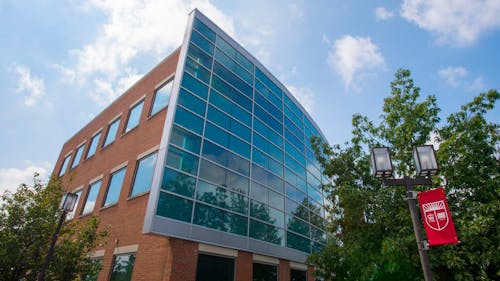Rutgers School of Public Health funds partial scholarships for 84 students

Three associate deans from the Rutgers School of Public Health recently designed and obtained funding for a scholarship program that will cover half the costs of tuition for 84 students, according to a press release.
The program is funded by a $1.5 million grant from the Health Resources and Services Administration that aims to provide money for students who wish to obtain certifications in the public health field, according to the release.
Laura E. Liang, Rafael E. Pérez-Figueroa and Marian R. Passannante are professors of Health Behavior, Society and Policy, Urban-Global Public Health and Biostatistics and Epidemiology respectively. As the three faculty members leading the program, they said that applying for the grant was a collaborative effort among School of Public Health staff which took a month to complete.
The program leaders said that the program aims to decrease inequities in the field of public health, abide by 10 Essential Public Health Services laid out by the Centers for Disease Control and Prevention and expand upon the current state of public health in New Jersey.
The program’s objectives include improving relationships within the general community to help those involved in the program obtain professional development opportunities. The second and third pertain to educating individuals in the field on public health inequities and disparities and how to prevent and react to public emergencies, such as the coronavirus disease (COVID-19) pandemic, respectively.
To meet these objectives, the scholarship program will enable students from underrepresented minorities or those who already work in local or state public health services without formal training to receive a master's degree in public health or a population health certificate, Liang, Pérez-Figueroa and Passannante said.
The program will fund partial-tuition scholarships for three years from September 2022 to September 2025, they said. Recipients will take classes for their specific program, complete an internship to assist underserved communities in the state and receive special skills-based training that is tailored to the needs of local public health programs.
The program directors said that they are trying to incorporate diversity, equity and inclusion (DEI) in order to fulfill the School of Public Health's central values.
“Health equity and social justice are the defining tenets of the Rutgers School of Public Health’s mission, and diversity, equity and inclusion (DEI) are incorporated into all our academic activities (research, teaching, and service) and educational programs,” Liang, Pérez-Figueroa and Passannante said.
This is especially important because most employees in health departments at every level of government across the country are non-Hispanic white, according to a study published in the American Journal of Public Health.
Out of these, 30 percent of non-Hispanic white individuals hold leadership positions in comparison to the 24 percent of individuals of color that do so, and 28 percent of both communities in the field had obtained their master’s degrees, while 16 percent of non-Hispanic white individuals and 21 percent of individuals of color lacked any secondary education.
By providing opportunities to minorities and those without formal training but experience in the field, working directly with local representatives and expanding the scholarship to last more than its expected term, the three stated that they anticipate addressing inequities in the realm of public health in the state in numerous ways.
The three leaders said that the School of Public Health's curriculum currently includes training on cross-cultural communication, disparities and societal factors regarding public health. It is also being revised to include training pertaining to racial disparities, climate change and the COVID-19 pandemic.
“Our reimagined core curriculum will improve the school’s academic offerings to further educate the public health workforce to address health inequities and disparities, apply principles of social determinants of health and deliver the 10 Essential Public Health Services in a culturally humble way,” Liang, Pérez-Figueroa and Passannante said.



